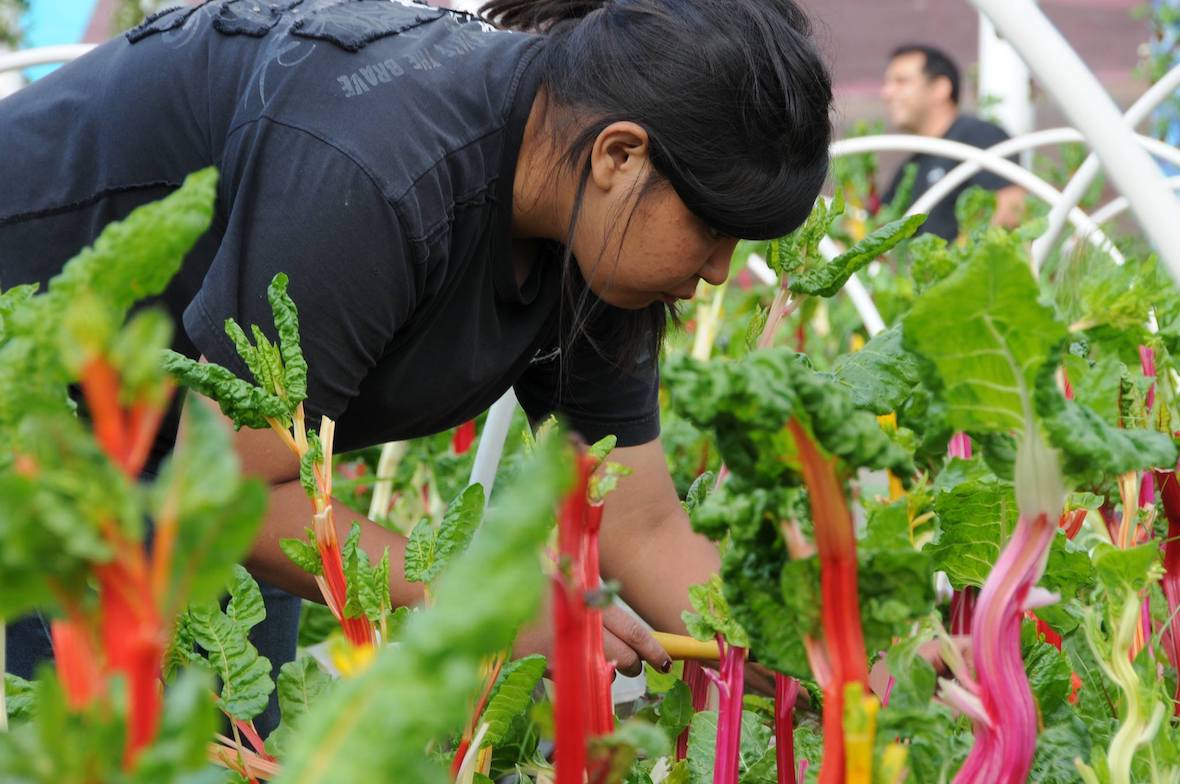
Editor’s note: We kicked off our first annual Food Loves Tech event last summer in Chelsea—here’s a recap. We’re bringing a taste of the food and farming future back this year, but just across the East River at Industry City. This story is part of an ongoing series about technology’s effects on our food supply.
New York City has the most urban farms and gardens of any city in the country, but they lack citywide coordination. A piece of legislation introduced at the City Council on July 20 by Brooklyn Borough President Eric L. Adams and City Councilmember Rafael Espinal (D-Bushwick, East New York) aims to transform the ad hoc nature of rooftop farms, schoolyard plots and community gardens into a comprehensive urban agriculture plan for the city.
In the press release about the bill, Adams envisions transforming “Brooklyn’s urban spaces from concrete jungles to green oases.”
The bill proposes to catalog existing and potential urban agriculture spaces throughout the city; to classify and prioritize urban agriculture uses; to identify potential land use policies to promote the expansion of urban agriculture across the city; and to analyze current zoning, building, and fire codes to help foster the industry. In doing so, Adams and Espinal hope to encourage youth development and education with regard to local food production, and to create green jobs. The bill also proposes to integrate urban agriculture into the city’s conservation and resiliency plans and to create an Office of Urban Agriculture in the city.
According to a recent white paper from the Center for Urban Business Entrepreneurship, policies governing urban agriculture remain “extremely nebulous,” and tend to benefit sophisticated, large-scale enterprises in commercial and industrial zones. The proposed legislation provides an opportunity to clarify zoning language and to better address the needs of lower income communities by building capacity for small-scale urban agriculture projects in residential areas and ensuring that the fruits of urban agriculture expansion benefit poorer areas of the city.
“Urban farming will address the issues of potential food insecurities in major cities by turning current food deserts in low-income communities into food farms,” said Espinal.



